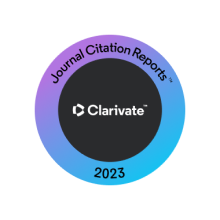Abstract
Introduction: Type 1 cardiorenal syndrome (CRS) is defined as acute decompensated heart failure (AHF) leading to secondary acute kidney injury. Few studies have evaluated the reliability of transthoracic echocardiography (TTE) in assessing outcomes in patients with type 1 CRS. We sought to identify echocardiographic predictors of outcomes (death and rehospitalization) in patients with type 1 CRS. Methods: This was a prospective longitudinal monocentric study, conducted from December 2020 to December 2022 in the cardiology department of the Internal Security Forces Hospital in Marsa, Tunisia. 68 patients with type 1 CRS were included prospectively. Physical, biological, and echocardiographic data were collected during the index hospitalization and at 3 and 6 months of follow-up. Results: The mean age was 69 ± 10.1 years with a male predominance (72.0%). The mortality rate during initial hospitalization for AHF was 11.7%. The all-cause mortality rate at six months was 22.0%. The rehospitalization rate was 38.0%. Severe tricuspid regurgitation (p=0.031), the subaortic velocity time integral (LVOT-VTI) with a cut-off value of 16, a sensitivity (Se) of 65%, and a specificity (Sp) of 85% (Area under the curve (AUC)=0.818, pConclusion: This study confirmed that type 1 CRS is associated with a poor prognosis. LVEF, LVOT-VTI, and RV-FAC are simple, reproducible, and sensitive ultrasound parameters for predicting outcomes in patients with type 1 CRS.
Recommended Citation
Antit, Saoussen; Bousnina, Sabrine; Fathi, Marwa; Fekih, Ridha; Boussabeh, Elhem; and Zakhama, Lilia
(2024)
"Echocardiographic predictive factors of worsening outcome in type 1 cardiorenal syndrome,"
Journal of the Saudi Heart Association: Vol. 36
:
Iss.
1
, Article 7.
Available at: https://doi.org/10.37616/2212-5043.1373
Creative Commons License

This work is licensed under a Creative Commons Attribution-Noncommercial-No Derivative Works 4.0 License.




